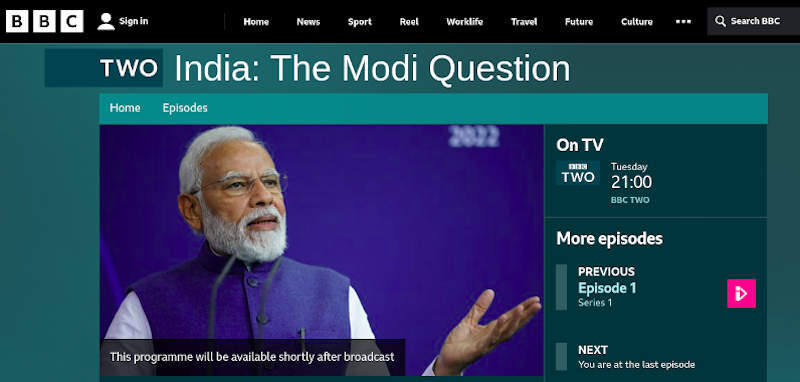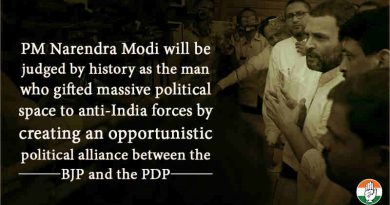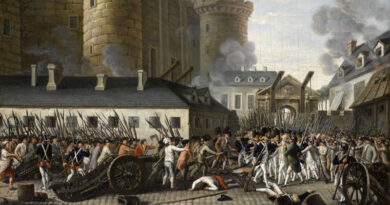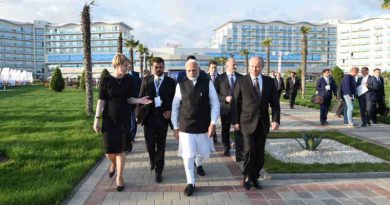New BBC Documentary Explains Modi’s Role in Gujarat Riots
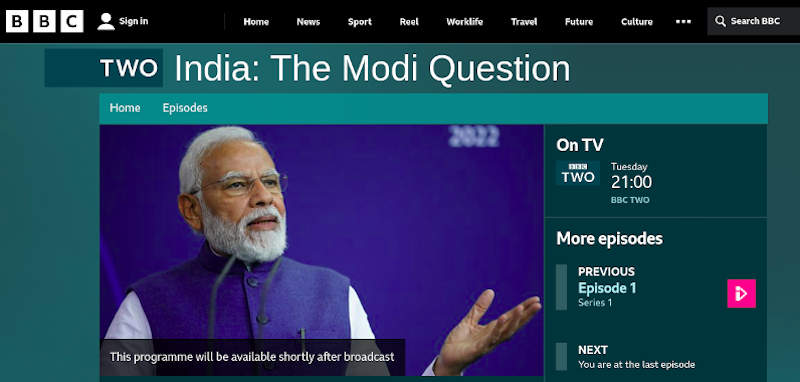
New BBC Documentary Explains Modi’s Role in Gujarat Riots
While about 2,000 Muslims were killed in the Gujarat riots, there were incidents of rape, robbery, and widespread destruction of property affecting Muslims.
By Rakesh Raman
A new BBC documentary, ‘India: The Modi Question,’ sheds light on the role of India’s prime minister (PM) Narendra Modi in the Gujarat violence of 2002 when Modi was the chief minister (CM) of Gujarat.
The first part of the series aired in the United Kingdom on BBC Two channel on January 17. As usual, without any substantiation, the Indian government has termed the BBC documentary a propaganda film, saying it aims to discredit Modi. It may not be allowed for viewing in India.
The second part of the documentary was shown on BBC Two on January 24. The Wire report says the BBC documentary claims that Modi is hugely divisive and India is currently in a religious turmoil under Modi.
On January 23, The Caravan magazine published the text of the report of inquiry conducted by the UK government into the 2002 Gujarat violence, which was cited in the BBC documentary on Modi.
Although the BBC film is about Modi’s role in the Gujarat violence, the Modi government is projecting it as an attack on the Indian state and trying to block the screening of the film by hook or by crook.
The Modi government under its draconian laws to censor online content directed YouTube and Twitter to take down links of the BBC documentary and both the social media sites succumbed to the government’s pressure and blocked the film.
However, some media outlets have given details of the alternative channels that can be used to watch both the episodes of the two-part docuseries, India: The Modi Question.
On January 24, international human rights organization Human Rights Watch tweeted parts of the film and said, “India has banned a BBC documentary about Prime Minister Narendra Modi’s role in the 2002 riots in Gujarat state. The documentary highlighted a report that found Modi “directly responsible” for the “climate of impunity” enabling the violence.”
GUJARAT VIOLENCE CASE
According to media reports, the documentary shows facts which ascertain that Modi was directly responsible for the Gujarat massacre that targeted Muslims in the state. The BBC film reveals that after the Gujarat violence, the British government had imposed a diplomatic boycott on Modi for his apparent failure to stop the genocidal crime against Muslims.
As expected, the Supreme Court of India on June 24, 2022 dismissed an appeal against the exoneration of Modi in the 2002 Gujarat riots case. With random comments against the appeal, the judges said it is “devoid of merits” and filed “to keep the pot boiling.”
Zakia Jafri, the widow of Ehsan Jafri — the Congress MP murdered in the Gujarat riots of 2002 — had challenged the acquittal of Modi who was the prime accused as the CM of Gujarat when the massacre happened.
The Supreme Court had reserved its verdict on the petition seeking a fresh probe into the 2002 Gujarat riots filed by activist Teesta Setalvad and Zakia Jafri who told the top court in December 2021 that she is seeking justice without trying to implicate Modi.
Ms Jafri – through her lawyer Kapil Sibal – had contended in the Supreme Court on November 10, 2021 that the Special Investigation Team (SIT) probing the Gujarat riots ignored evidence and drew conclusions without any investigation.
Ms Jafri, 81, argued that the SIT did not record statements, seize phones, check how bombs were manufactured, and filed closure reports to exonerate Modi surreptitiously.
She has been fighting for justice for the past many years, as her husband Ehsan Jafri was among the 68 people killed at the Gulbarg Society in Ahmedabad on February 28, 2002 — a day after a train was burnt at Godhra in Gujarat, killing 59 people that led to the mass murder of Muslims. Without proper investigation, it was declared that Muslims had burnt the train.
GUJARAT POGROM
The SIT had exonerated Modi of all charges in the Gujarat pogrom against Muslims. In a “summary closure report,” the SIT had said there was no “prosecutable evidence” against Modi, who was among 62 persons named in the complaint filed by Jafri and the humanitarian organization Citizens for Justice and Peace (CJP).
According to a detailed report published on December 9, 2021 by the CJP, which has compiled the investigative material in the Zakia Jafri case, the petitioners made several submissions countering everything the SIT had put before the court and referred to all such material that required further investigation.
The CJP through its Secretary Teesta Setalvad was also the second petitioner in the case after Zakia Jafri. Just a day after the Supreme Court dismissed the appeal against the exoneration of Modi, co-petitioner in the case Ms Setalvad was arrested by the anti-terrorism squad (ATS) of the Gujarat Police in June 2022 from her house in Mumbai.
It was a kind of revenge of the Modi government against Ms Setalvad because she had tried to get the Gujarat riots case opened in the Supreme Court. Later, in September, the Supreme Court granted interim bail to Ms Setalvad.
With the aim to destroy the evidence, a prime witness Haren Pandya – who was the Home Minister of Gujarat and who informed about Modi’s role in the Gujarat riots – was murdered in 2003 in Ahmedabad, Gujarat.
The Outlook magazine quoted Pandya who had revealed to the magazine in May 2002 that on the night of February 27, 2002 Modi had held a meeting at his residence.
In the meeting, Modi ordered the bureaucrats and police officers to allow “people to vent their frustration and not come in the way of the Hindu backlash” against Muslims after the mysterious Godhra train burning incident. The investigation into the murder of Pandya was not done properly so that the evidence could be destroyed.
A number of other key witnesses in the Gujarat riots case either died in mysterious circumstances or jailed on frivolous charges so that Modi could be acquitted in the case.
That is why police, bureaucrats, court judges, and other witnesses prefer to stay silent even when they know the truth. Similarly, after Haren Pandya’s murder, politicians in the opposition parties and Modi’s own party are scared to talk about Gujarat riots. This is the main reason that Modi and his accomplices have not been prosecuted properly.
While the BBC documentary has discussed the Gujarat violence case thoroughly, most Indian media outlets are terrified to report about Modi’s role in the Gujarat riots. As a result, instead of getting prosecuted or convicted, Modi is ruling the country as a king and the witnesses have been either murdered or jailed.
Since the police, bureaucrats, court judges, opposition leaders, and journalists are scared, they do not discuss other cases of crime and corruption in which Modi is allegedly involved. These include the Rafale corruption case, PM-CARES Fund case, electronic voting machine (EVM) fraud case, Pulwama terror attack case, and others.
MURDER OF MUSLIMS
While about 2,000 Muslims were killed in the Gujarat riots, there were incidents of rape, robbery, and widespread destruction of property affecting Muslims. It was alleged that the killings were executed at the behest of Modi.
Although Indian courts have exonerated Modi in this case, most Muslims in India still believe that Modi was responsible for the Gujarat massacre. The less said about the Indian courts, the better.
According to Human Rights Watch, the attacks against Muslims in Gujarat were actively supported by state government officials and the police. Police told Muslims, “We have no orders to save you.”
As a result, the U.S. administration denied visa to Modi in view of the allegations of human rights violations against him in the 2002 incidents of riots and carnage. But as he has become the PM of India, Modi is visiting the U.S. frequently because now he enjoys political immunity. [ Click here to watch a related video. ]
On October 26, 2021, after multiple adjournments, the Supreme Court had begun hearing a Special Leave Petition filed by Ms Jafri and CJP. The case was before a bench of Justices AM Khanwilkar, Dinesh Maheshwari, and CT Ravikumar which rejected the case against Modi arbitrarily.
It is being increasingly observed that the Supreme Court of India judges are scared of crooked politicians who virtually control them. When the case is against the government politicians or top officials connected with the politicians, the judges do not take any decision that may displease their government bosses.
In the past, multiple cases have been either ignored by the Supreme Court arbitrarily or the judgments have gone in favor of the Modi government. These cases include Ayodhya temple case, Rafale corruption case, electronic voting machines (EVM) fraud case, PM-CARES Fund case, Article 370 case on Kashmir, Judge Loya death case, Gujarat riots case, Citizenship Amendment Act (CAA) case, electoral bonds case, judicial corruption case, sextortion case of former Chief Justice Ranjan Gogoi, environmental crime case, Pegasus spyware case, and a number of other cases which still await justice.
Thus, the Supreme Court of India has lost its credibility and relevance. If you evaluate the Supreme Court judgments (involving the Modi government) through an Artificial Intelligence (AI)-based expert system, you will find that almost all the judgments or delays are biased in favour of the Modi government.
But there is no system to punish the judges who pronounce judgments influenced by their surreptitious links with politicians rather than any judicial reasoning.
As most judges behave like demigods, there is no accountability for their own lawlessness and misconduct in the courts. Dishonesty is so rampant in the Indian courts that the judges shamelessly accept unsigned notes given in sealed covers to acquit politicians in serious criminal cases. Technology can help address such arbitrariness in Indian courts, but the courts are reluctant to use technology because they want to work in an autocratic manner.
In fact, the Supreme Court’s judgment in the Gujarat riots case should also be tested on an AI-based expert system to know the objectivity or truthfulness of the court decision.
COMPLICIT POLICE AND WEAK COURTS
Usually, the police and courts do not take action against Modi, the Modi government, and the leaders of Modi’s Bharatiya Janata Party (BJP). The police officers have seen the horrific cases of Haren Pandya’s murder and Gujarat riots whistleblower Sanjiv Bhatt who tried to raise their voice against Modi.
Bhatt – who was a senior police officer – has been implicated in a custodial death case of 1990 and serving life imprisonment under Section 302 of the Indian Penal Code (IPC). Shweta Sanjiv Bhatt, the wife of Sanjiv Bhatt, maintains that it is a fabricated case in which her husband has been falsely implicated.
Similarly, most judges must be scared after witnessing the fate of judge Loya (Brijgopal Harikishan Loya) who had died in mysterious circumstances. In this case, BJP leader Amit Shah – who is now the Home Minister of India – was the prime accused.
But no investigation or investigating officer can dare to point the finger at Amit Shah who controls the police and other law-enforcement agencies. Judges and investigating officers know that if judge Loya can die in an inexplicable manner, they also can be made to face the same fate.
Earlier it had happened in the Vyapam scam case in which, like Amit Shah, another BJP leader and Madhya Pradesh chief minister Shivraj Singh Chouhan was an accused. As the investigation into the Vyapam case was progressing, the witnesses and others familiar with the case started disappearing.
A Special Task Force (STF) submitted a list to the high court in 2015 informing that 23 people died “unnatural death.” Some media reports claimed that more than 40 people associated with the Vyapam scam had died under mysterious circumstances.
Obviously, most witnesses, police officers, and judges will not dare to go against the will of Modi and his accomplices. This may be the reason that Modi has been acquitted in the Gujarat riots case. In all autocratic regimes, the rulers silently control and use courts to get all decisions in their favour.
In fact, Modi’s entire career in politics is founded on violent events such as the train burning in Godhra and Gujarat riots of 2002. Such anti-Muslim events helped Modi win votes of Hindu voters in a country where nearly 80% voters are Hindus.
Since Modi is an illiterate and uncivilized politician, he does not deserve any position in the government. Initially, he would have won in Gujarat with Hindu votes. But at the national level, only a miniscule fraction of real Hindus support Modi’s divisive communal actions.
Therefore, since the Lok Sabha election of 2014, Modi and his party have been winning most elections with the selective manipulation of electronic voting machines (EVMs).
The opposition groups – including political parties, civil society, students, and journalists – are so terrified of Modi’s violent behavior that they do not challenge his hostile actions.
So, despite unprecedented corruption, inflation, unemployment, and religious animosity under his rule, Modi will keep running the country as a one-man regime. In the past 9 years of his rule, Modi has tarnished India’s image in all parts of the world and the BBC film has proved once again that Modi is not fit to run the country as its PM.
Meanwhile, a #BBCDocumentary hashtag has been trending on Twitter since January 19, 2023. The BBC documentary has tried to show the truth of Gujarat violence, but it will not have any impact on Modi or his government in India.
By Rakesh Raman, who is a national award-winning journalist and social activist. He is the founder of the humanitarian organization RMN Foundation which is working in diverse areas to help the disadvantaged and distressed people in the society. He has also launched the “Power Play: Lok Sabha Election 2024 in India” editorial section to cover the news, events, and other developments related to the 2024 election.

